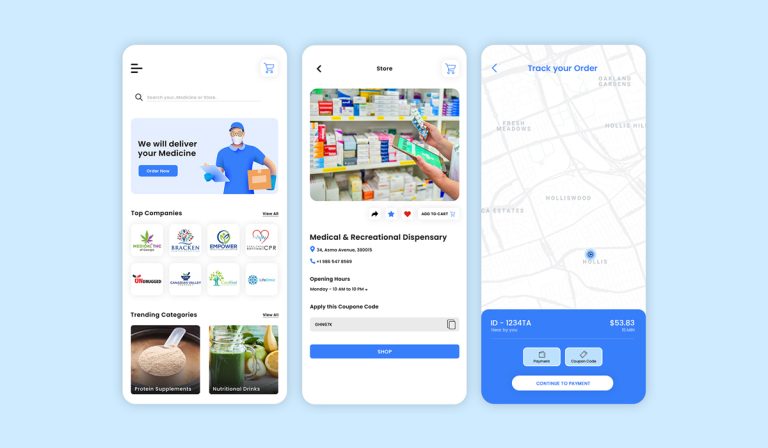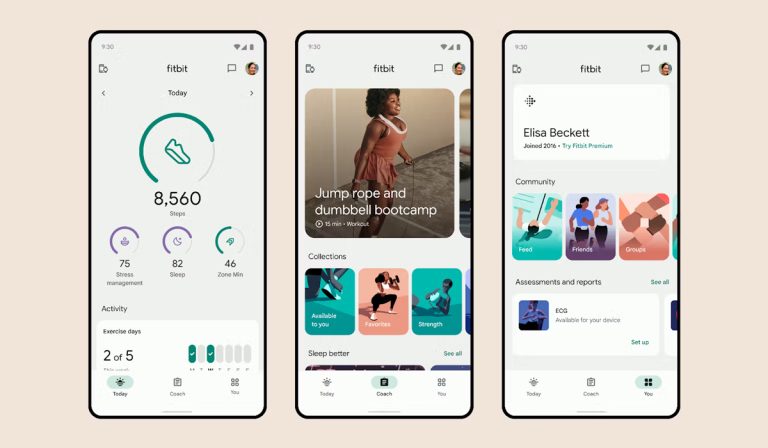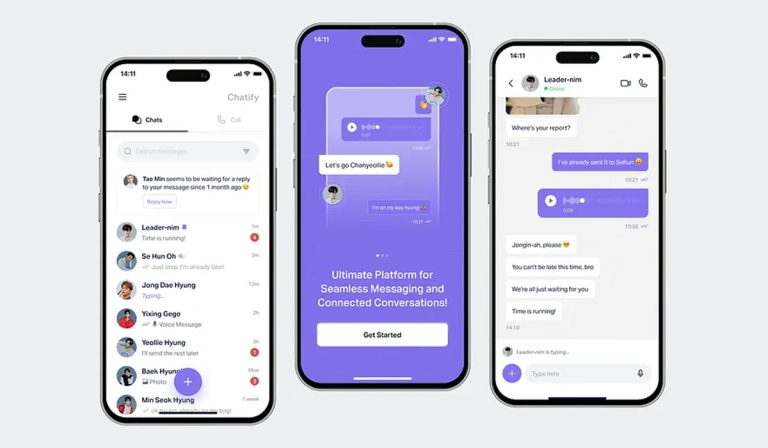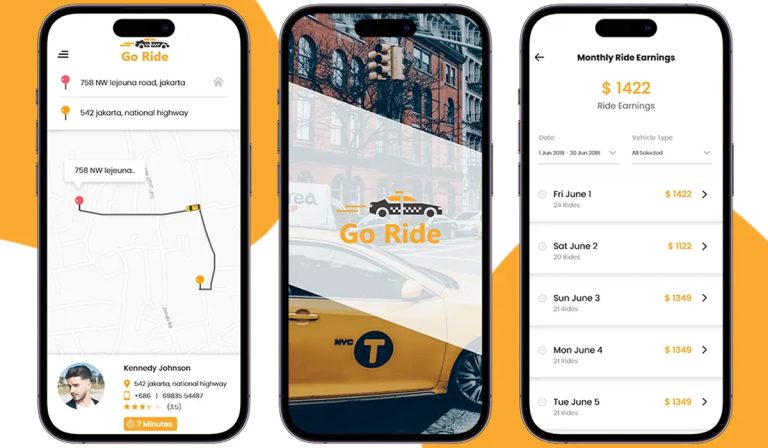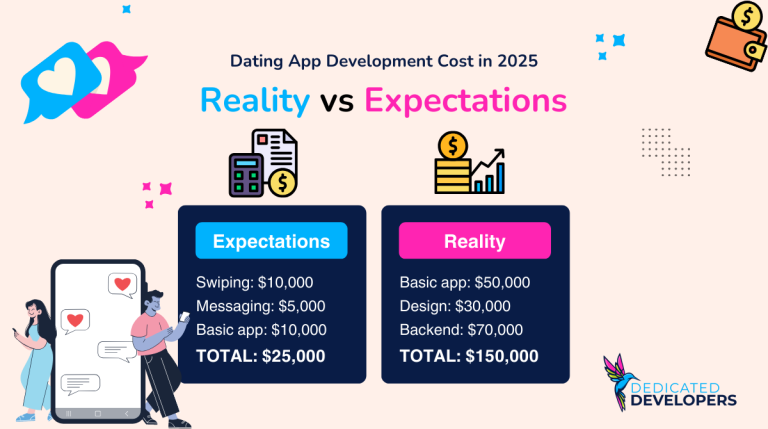On-Demand Home Service App Development Cost in 2025: What Actually Drives the Price
My home service app just needs booking and payments.
Four months and $125,000 later, this founder learned that building an on-demand service app isn’t about creating a simple booking form—it’s about building infrastructure that can handle thousands of simultaneous requests, real-time GPS tracking, instant provider matching, and payment processing without a single second of downtime when a customer’s sink is flooding at 2 AM.
After building 300+ successful apps (including on-demand platforms with over 2 million active users), we’ve learned that home service app development costs range from $75,000-$280,000 for a competitive platform. The difference between a failed experiment and a thriving business? Understanding that modern users expect Uber-level convenience, Amazon-quality reliability, and bank-grade security—all while maintaining instant response times when they need emergency repairs.
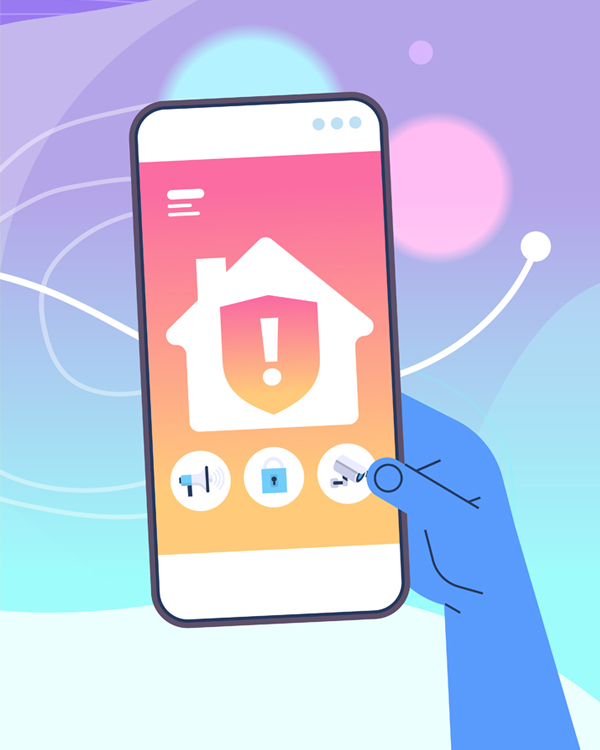
Market Landscape
The $1.57 Trillion Opportunity
The global on-demand home services market is experiencing explosive growth, driven by busy lifestyles and digital transformation:
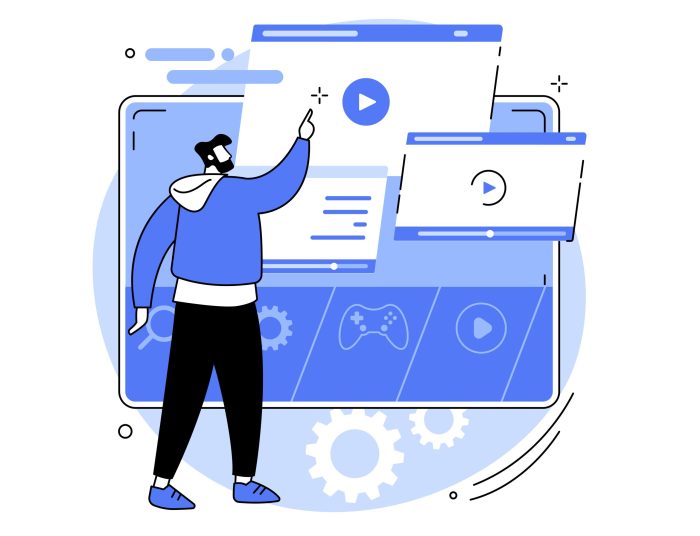
Market Fundamentals:
Current Market Size
$1.18 trillion (2024)
Projected Market Size
$1.57 trillion by 2027
Growth Rate
10.2% CAGR
Global Users
750+ million households using on-demand services
Revenue Per Transaction
Average $75-$350 per service booking
Market Leaders & Their Success:

$150+ million revenue, 60,000+ taskers, acquired by IKEA for expansion

$100+ million revenue, operates in 6 countries, focus on home cleaning and repairs

$300+ million revenue, 250,000+ professionals, local services marketplace leader

$170+ million revenue, 35,000+ service partners, dominant in Asian markets
The pandemic permanently changed how people approach home maintenance. Apps like Handy saw a 420% increase in cleaning bookings, while TaskRabbit reported 85% year-over-year growth in handyman requests. Users now expect instant booking, real-time tracking, verified professionals, and contactless payments as standard offerings, not premium features.
- Specialized trade services (HVAC, roofing, landscaping)
- Smart home integration and IoT device installation
- Green and eco-friendly service options
- Subscription-based home maintenance plans
- Emergency service marketplaces (24/7 availability)
- Commercial property maintenance platforms
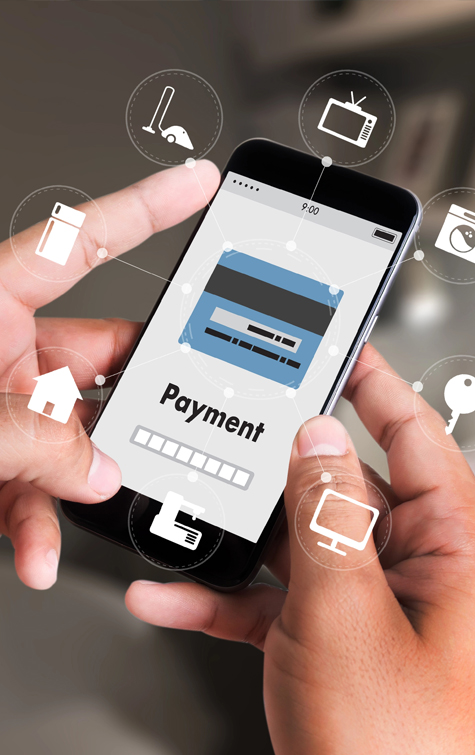
Essential Features Deep Dive
Core Features (Market Entry Requirements)
Development Cost: $25,000-$50,000
User Authentication & Profile Management
- Email/phone/social media registration
- Customer and service provider separate profiles
- Address management with multiple properties
- Service history and preferences
- Account security and verification
- Profile photos and documents upload
- Service category navigation (cleaning, plumbing, electrical, handyman)
- Service descriptions with pricing transparency
- Date and time slot selection
- Instant or scheduled booking options
- Service customization (number of rooms, square footage, specific tasks)
- Special instructions and requirements
Real-Time Provider Matching
- Intelligent provider assignment based on availability
- Distance-based matching algorithms
- Skill-based provider filtering
- Automated notifications to nearby providers
- Accept/decline functionality for providers
- Backup matching if initial provider declines
GPS Tracking & Navigation
- Real-time provider location tracking
- ETA calculations and updates
- In-app navigation for providers
- Route optimization
- Arrival notifications
- Location history and proof of service
Payment Processing
- Multiple payment methods (cards, wallets, cash)
- Secure payment gateway integration
- Tip functionality
- Promo codes and discounts
- Invoice generation
- Payment history and receipts
- Two-way rating system (customers rate providers, providers rate customers)
- Detailed review writing
- Photo uploads for completed work
- Response functionality for providers
- Rating filters and sorting
Push Notifications
- Booking confirmations
- Provider assignment alerts
- Arrival notifications
- Service completion updates
- Payment confirmations
- Promotional offers
Competitive Features (Differentiation Factors)
Development Cost: $35,000-$75,000
Advanced Booking System
- Recurring service scheduling (weekly, bi-weekly, monthly)
- Multi-service bundling with discounts
- Calendar integration
- Booking modification and rescheduling
- Group bookings for multiple properties
- Priority booking for premium users
- Real-time chat between customers and providers
- Voice calling functionality
- Video consultation option
- Photo and document sharing
- Chat history and archives
- Automated message templates
- Detailed work portfolios with before/after photos
- Certification and license display
- Insurance verification badges
- Years of experience and specializations
- Background check status
- Response time and reliability metrics
- Dynamic pricing based on demand
- Distance-based price adjustments
- Time-of-day pricing variations
- Surge pricing for emergencies
- Bulk discount calculations
- Comparative price displays
- Service history and upcoming bookings
- Favorite providers list
- Spending analytics
- Property management (multiple addresses)
- Service reminders and maintenance schedules
- Family account management
- Earnings dashboard with analytics
- Availability calendar management
- Job acceptance criteria settings
- Service area customization
- Skill and certification management
- Tax document generation
Premium Features (Revenue Drivers)
Development Cost: $45,000-$90,000
AI-Powered Features
- Intelligent price estimation based on job description
- Automatic job categorization using NLP
- Provider recommendation engine
- Demand prediction and smart scheduling
- Fraud detection and prevention
- Customer behavior analysis for personalized offers
- Government ID verification
- Live photo verification with facial recognition
- Real-time background checks
- License and certification verification
- Insurance document validation
- Ongoing compliance monitoring
- Post-service quality checks
- Automated follow-up surveys
- Complaint management workflow
- Service guarantee programs
- Quality score tracking for providers
- Automated penalty and reward system
- Corporate account management
- Bulk booking capabilities
- Custom pricing contracts
- Dedicated account managers
- Advanced reporting and analytics
- Integration with property management systems
- Point-based reward system
- Tiered membership levels
- Referral program with incentives
- Exclusive discounts for members
- Early access to new services
- Partner rewards and perks
- Product recommendations during service
- In-app equipment/supply purchases
- Extended warranty options
- Service insurance add-ons
- Maintenance plan subscriptions
- Cross-service promotions
Future-Proofing Features (Long-term Success)
Development Cost: $30,000-$60,000
- AR visualization for service planning (furniture placement, paint colors)
- IoT smart home device integration
- Voice assistant compatibility (Alexa, Google Home)
- Blockchain-based payment options
- Virtual reality training for providers
- Drone inspection integration for roofing/exterior services
- Predictive maintenance recommendations
- Service trend analysis
- Market demand forecasting
- Revenue optimization algorithms
- Customer lifetime value predictions
- Churn risk identification
- Eco-friendly service provider badges
- Carbon footprint tracking
- Green product recommendations
- Paperless documentation
- Electric vehicle provider preference
- Sustainable business practice certifications
Development Cost Breakdown
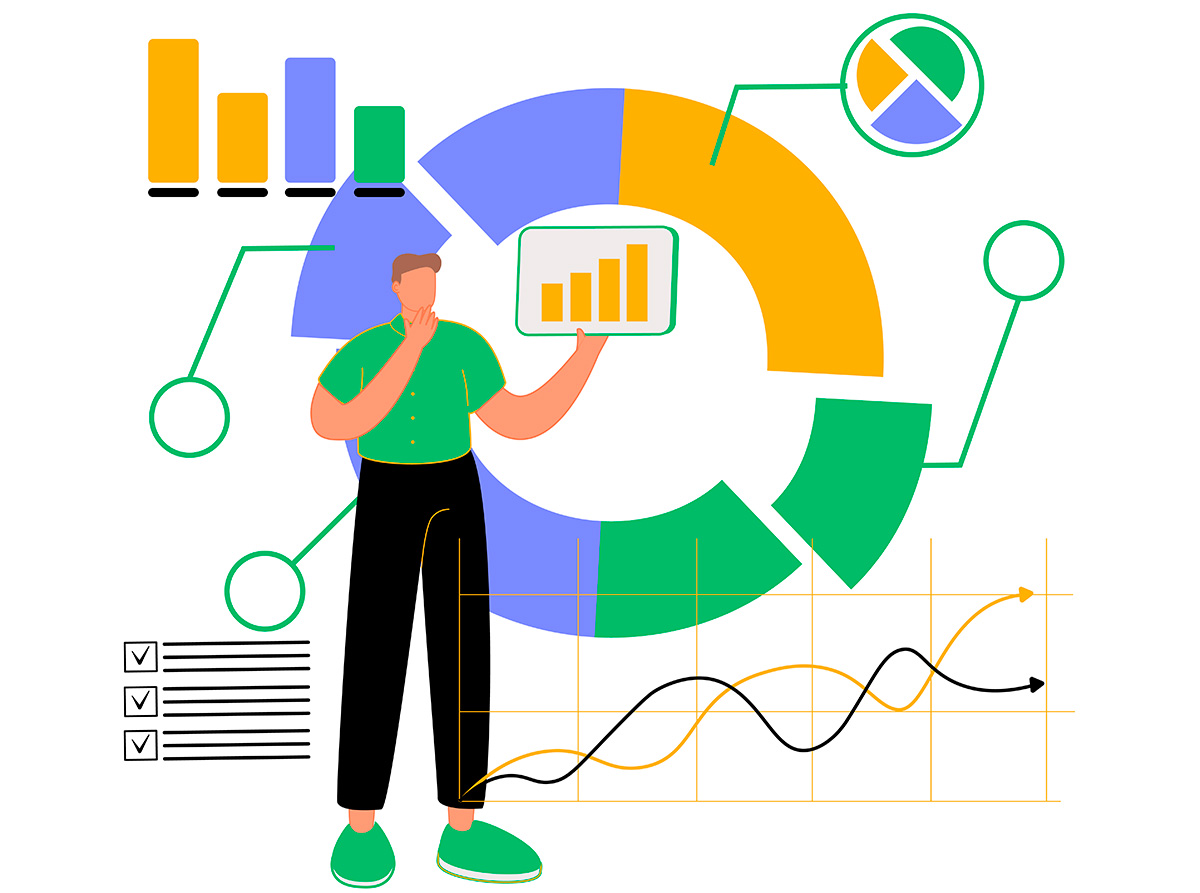
MVP On-Demand Service App: $75,000-$130,000
Timeline: 4-6 months
Core Development Breakdown:
Backend Development: $20,000-$35,000
- User authentication and profile management
- Booking and scheduling system
- Provider matching algorithm
- Real-time GPS tracking infrastructure
- Payment processing integration
- Database design and optimization
- API development and documentation
- Push notification system
Mobile App Development: $25,000-$45,000
- iOS and Android native apps (customer + provider apps)
- Core booking flow implementation
- Real-time tracking interface
- Payment integration
- Ratings and review system
- Basic animations and interactions
- App store optimization preparation
- User research and persona development
- Wireframing for customer and provider flows
- Visual design and branding
- Icon and asset creation
- Usability testing and refinement
- Design system documentation
Quality Assurance & Testing: $8,000-$15,000
- Functional testing across devices
- GPS and location testing
- Payment processing testing
- Performance and load testing
- Security vulnerability assessment
- User acceptance testing
- Bug fixing and optimization
- Project coordination and communication
- Agile sprint management
- App store submission (both platforms)
- Initial deployment and monitoring
- Documentation and training materials
- Google Maps/Mapbox integration
- Payment gateway setup (Stripe/PayPal)
- Push notification services
- SMS gateway for OTP
- Analytics and crash reporting
Standard On-Demand Service Platform: $130,000-$200,000
Timeline: 6-9 months
Enhanced Features Addition:
- Machine learning-based provider matching
- Skill and availability optimization
- Multi-factor matching algorithms
- A/B testing framework for matching logic
- Performance analytics and optimization
- Fallback matching strategies
- Real-time chat infrastructure
- Voice calling integration
- Video consultation capabilities
- File and photo sharing
- Message moderation tools
- Communication analytics
- Background check API integration
- Document verification system
- ID verification with AI
- Fraud detection algorithms
- Content moderation tools
- Compliance management system
- Split payment functionality
- Escrow payment system
- Automatic refund processing
- Multi-currency support
- Invoice customization
- Tax calculation automation
- Comprehensive earnings dashboard
- Advanced availability management
- Route optimization tools
- Performance analytics
- Training and onboarding modules
- Compliance tracking
Premium On-Demand Solution: $200,000-$280,000
Timeline: 9-14 months
Enterprise-Grade Features
AI & Machine Learning: $35,000-$60,000
- Demand forecasting algorithms
- Dynamic pricing optimization
- Natural language processing for job descriptions
- Image recognition for service verification
- Personalization engines
- Predictive maintenance recommendations
- Microservices architecture
- Global CDN implementation
- Auto-scaling infrastructure
- Multi-region deployment
- Disaster recovery systems
- Advanced caching strategies
- Business intelligence dashboard
- Customer behavior analytics
- Provider performance metrics
- Revenue optimization tools
- Market trend analysis
- Custom reporting engine
- Smart device connectivity
- Automated service triggers
- Device diagnostics integration
- Remote device control
- Integration with major IoT platforms
- Custom device protocol support
Development Timeline Reality
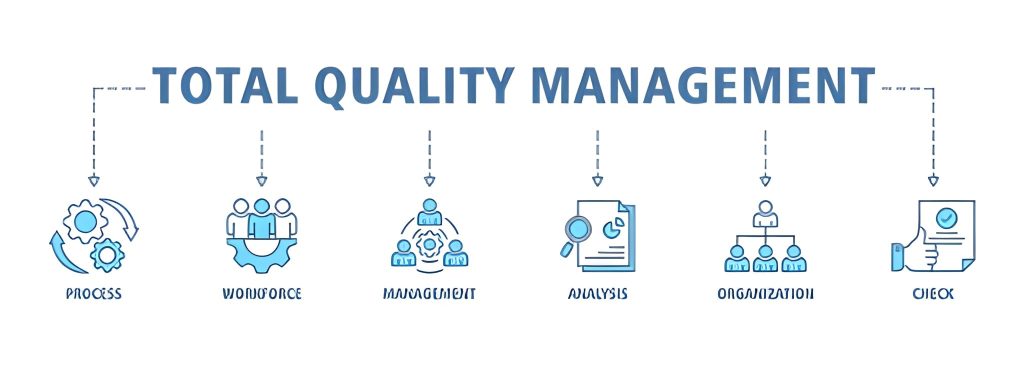
Phase 1: Discovery & Strategic Planning (4-6 weeks)
Market Research & Competitive Analysis (1-2 weeks):
- Target market research and user interviews
- Competitive landscape analysis
- Service category prioritization
- Market opportunity assessment
- Business model validation
- Regulatory requirement research
Technical Architecture & Planning (2-3 weeks):
- System architecture design
- Technology stack selection
- Database schema planning
- Third-party service evaluation
- Scalability planning
- Security framework design
Feature Prioritization & Roadmap (1-2 weeks):
- MVP feature definition
- User story creation
- Development roadmap planning
- Risk assessment
- Resource allocation
- Budget finalization
Phase 2: Design & Prototyping (3-5 weeks)
User Experience Design (1.5-2.5 weeks):
- User journey mapping for customers and providers
- Wireframing and information architecture
- Booking flow optimization
- Usability testing
- Accessibility considerations
Visual Design & Branding (1.5-2.5 weeks):
- Brand identity development
- High-fidelity UI design
- Design system creation
- Animation and micro-interaction design
- Asset creation and optimization
Phase 3: Core Development (12-18 weeks)
Backend Infrastructure Development (5-7 weeks):
- Database setup and core API development
- User authentication system
- Booking and scheduling engine
- Provider matching algorithm
- Real-time tracking infrastructure
- Payment processing integration
Mobile App Development (6-9 weeks):
- Customer app development (iOS & Android)
- Provider app development (iOS & Android)
- Core feature implementation
- UI/UX implementation
- Device compatibility testing
Integration & Testing (1-2 weeks):
- Third-party service integrations
- API integration testing
- Cross-platform compatibility
- Security testing
- Performance optimization
Phase 4: Advanced Features (6-10 weeks)
Enhanced Functionality (3-5 weeks):
- Advanced matching algorithm
- Communication features (chat, call, video)
- Enhanced verification systems
- Loyalty and rewards program
- Advanced analytics implementation
Admin Panel Development (2-3 weeks):
- Dashboard creation
- User management system
- Booking oversight tools
- Financial reporting
- Content management system
Performance Optimization (1-2 weeks):
- Load testing and optimization
- Database performance tuning
- UI/UX refinement
- Security hardening
- Scalability testing
Phase 5: Quality Assurance & Launch Preparation (4-6 weeks)
Comprehensive Testing (2-3 weeks):
- Functional testing across all features
- GPS and location accuracy testing
- Payment processing verification
- Security penetration testing
- User acceptance testing
- Load and stress testing
Launch Preparation (1-2 weeks):
- App store submission and optimization
- Marketing material preparation
- Provider onboarding system setup
- Customer support system implementation
- Launch strategy execution
Post-Launch Monitoring (1 week):
- Launch execution and monitoring
- User feedback collection
- Performance monitoring
- Critical bug fixes
- Success metrics tracking

Infrastructure & Operational Costs:
Server & Hosting:
$2,500-$20,000/month
- Scales with user base and geographic coverage
- Real-time tracking requires significant bandwidth
- Image storage for service verification photos
- Database hosting and backup
- Global content delivery network
Third-party Services: $1,500-$10,000/month
- SMS gateway (OTP, notifications): $500-$2,000/month
- Push notifications: $200-$800/month
- Maps and location services: $500-$3,000/month
- Payment processing fees: 2.9% + $0.30 per transaction
- Background check services: $15-$35 per provider
- Communication infrastructure (voice/video): $1,000-$3,000/month
Security & Compliance: $20,000-$40,000 initial + $3,000-$10,000/month
- Security audits and penetration testing
- Data privacy compliance (GDPR, CCPA)
- Background check compliance
- Insurance and liability coverage verification
- Legal consultation for service agreements
- Content moderation services
Marketing & User Acquisition: $15,000-$150,000+/month
- Customer acquisition campaigns
- Provider recruitment and onboarding
- Local SEO and content marketing
- Social media advertising
- Referral program costs
- Partnership development
Customer Support: $3,000-$15,000/month
- Support staff salaries
- Ticketing system costs
- Help desk software
- Training and documentation
- 24/7 emergency support capability
Why Budget Development Fails:
On-demand service apps launched with $40,000-$60,000 budgets typically crash within 4-6 months when they hit 5,000+ concurrent users. The infrastructure cannot handle real-time GPS tracking loads, provider matching at scale, or the payment processing volume necessary for business viability. Emergency services require 99.9% uptime—anything less destroys user trust permanently.
Technology Stack & Architecture

Frontend Technology Decisions
Mobile Development Approaches:
Native Development (iOS + Android): $70,000-$110,000
- Optimal performance for real-time tracking
- Full access to device capabilities
- Superior GPS and location accuracy
- Platform-specific optimizations
- Required for production on-demand apps
- Separate customer and provider apps
Cross-Platform (React Native/Flutter): $50,000-$80,000
- Faster development timeline
- Shared codebase reduces costs
- Good performance for most features
- Some GPS accuracy limitations
- Suitable for MVP and market testing
Hybrid Development (Ionic/Cordova): $35,000-$55,000
- Lowest initial development cost
- Significant performance limitations
- Not recommended for real-time tracking
- Unsuitable for competitive on-demand apps
Backend Infrastructure Requirements
Core Backend Services:
User Management System: Node.js, Python Django, or Ruby on Rails
Real-Time Tracking: WebSocket implementation with Redis for real-time updates
Matching Engine: Python with machine learning libraries for optimal matching
Payment Processing: Stripe Connect or Braintree for marketplace payments
Database Architecture: PostgreSQL for transactional data, MongoDB for logs
Scalability Considerations:
Microservices Architecture: Essential for apps targeting 50,000+ users
Load Balancing: Auto-scaling groups with health monitoring
Caching Strategy: Redis for session management and frequent queries
Message Queue Systems: RabbitMQ or Apache Kafka for asynchronous operations
Geographic Distribution: Multi-region deployment for global coverage
Critical Third-Party Integrations
Essential Services:
Maps & Location: Google Maps API, Mapbox for routing and navigation
Payment Processing: Stripe, PayPal, Apple Pay, Google Pay
Push Notifications: Firebase Cloud Messaging, Apple Push Notification
SMS Gateway: Twilio, MessageBird for OTP and notifications
Analytics: Mixpanel, Amplitude for user behavior tracking
Crash Reporting: Crashlytics, Sentry for stability monitoring
Service-Specific Integrations:
Background Checks: Checkr, Sterling for provider verification
ID Verification: Jumio, Onfido for identity validation
Voice/Video: Twilio, Agora for communication features
Insurance Verification: Third-party insurance validation APIs
Review Management: Integration with Google, Yelp for reputation
Accounting: QuickBooks, Xero for financial management
Regional Cost Analysis

North America (Premium Quality)
United States & Canada
Hourly Rate: $125-$200
Project Cost: $120,000-$280,000
Timeline: Standard to faster
Advantages:
- Native communication, same timezone
- Deep expertise in real-time tracking and GPS systems
- Strong compliance knowledge (licensing, insurance, background checks)
- Proven track record with on-demand platforms
Eastern Europe (Excellent Value)
Poland, Ukraine, Romania
Hourly Rate: $50-$95
Project Cost: $75,000-$180,000
Timeline: Standard
Advantages:
- Strong technical skills in real-time systems
- Good English communication
- Cultural alignment with Western markets
- Cost-effective without compromising quality
- Experience with marketplace platforms
Asia (Cost-Effective)
India, Vietnam, Philippines
Hourly Rate: $25-$65
Project Cost: $50,000-$130,000
Timeline: Longer due to communication overhead
Advantages:
- Lowest development costs
- Large talent pool
- 24/7 development cycle potential
Considerations:
- Timezone challenges (12-hour difference)
- Communication barriers requiring detailed documentation
- Quality variation between teams
- Less experience with complex on-demand infrastructure
Hybrid Approach (Recommended)
Distributed Team Strategy:
Team Structure:
- US-based product management and architecture
- Eastern European development team for core features
- Asian QA, testing, and customer support
- Centralized project coordination
Cost Savings: 30-45% vs full US team
Quality: Maintained through strong leadership and clear processes
Typical Hybrid Cost: $85,000-$190,000 for full platform
Why This Works:
- Strategic expertise where it matters most
- Cost optimization without quality compromise
- Follow-the-sun development potential
- Balanced communication and execution
Monetization & ROI Analysis

Proven Revenue Models
Commission-Based Model (Primary revenue for 90% of platforms):
- Platform Fee: 15-30% commission per booking
- Service Provider Fee: 5-15% additional fee
- Processing Fee: 2-4% payment processing charge
- Average Commission: $15-$75 per completed service
- Scalable Revenue: Grows directly with platform usage
Subscription Model:
- Customer Subscriptions: $9.99-$49.99/month for benefits
- Provider Subscriptions: $29.99-$199/month for premium features
- Enterprise Plans: $499-$2,999/month for businesses
- Typical Conversion: 8-15% of active users
Surge Pricing & Dynamic Fees:
- Peak Time Surcharges: 1.2x-2.5x normal rates
- Emergency Service Fees: $20-$100 premium
- Last-Minute Booking Fee: $10-$30 additional
- Distance-Based Fees: $0.50-$2.00 per mile beyond radius
Value-Added Services:
- Featured Provider Listings: $50-$300/month
- Advertising Placements: $100-$1,000/month
- Insurance Products: $5-$25 per booking
- Extended Warranties: 10-20% of service cost
- Priority Support: $15-$50/month
Revenue Benchmarks by App Maturity
Months 1-6 (Launch Phase):
- Active Users: 1,000-8,000 customers, 100-500 providers
- Monthly Transactions: 200-1,500 bookings
- Average Transaction Value: $75-$150
- Monthly Revenue: $2,500-$30,000
- Primary Goal: Market validation and feedback
Months 6-18 (Growth Phase):
- Active Users: 8,000-75,000 customers, 500-3,000 providers
- Monthly Transactions: 1,500-15,000 bookings
- Average Transaction Value: $100-$200
- Monthly Revenue: $30,000-$400,000
- Primary Goal: Geographic expansion and category growth
Months 18+ (Maturity Phase):
- Active Users: 75,000-500,000+ customers, 3,000-20,000+ providers
- Monthly Transactions: 15,000-100,000+ bookings
- Average Transaction Value: $125-$250
- Monthly Revenue: $400,000-$3,000,000+
- Primary Goal: Profitability and market leadership
User Acquisition Cost Analysis
Average Customer Acquisition Cost (CAC) by Channel:
- Google Ads: $25-$70 per customer
- Facebook/Instagram Ads: $18-$50 per customer
- Referral Programs: $10-$25 per customer
- Content Marketing/SEO: $8-$20 per customer
- Local Partnerships: $15-$35 per customer
- Organic/Viral Growth: $3-$8 per customer
Provider Acquisition Cost:
- Online Recruitment: $100-$250 per provider
- Referral Programs: $50-$150 per provider
- Local Events/Job Fairs: $80-$200 per provider
- Partner Onboarding: $30-$100 per provider
Lifetime Value (LTV) Calculations:
- Average Customer Lifespan: 18-36 months
- Average Bookings per Customer: 8-24 per year
- Commission per Booking: $15-$75
- Estimated Customer LTV: $240-$1,800
- Target LTV:CAC Ratio: 3:1 minimum for sustainability
Break-Even Analysis
Conservative Growth Scenario:
- Development Investment: $120,000
- Monthly Operating Costs: $12,000-$25,000
- Monthly Revenue Growth: 15-20%
- Break-Even Timeline: 18-26 months
- Required Transaction Volume: 4,000-7,000 monthly bookings
Aggressive Growth Scenario:
- Development Investment: $200,000
- Monthly Operating Costs: $25,000-$45,000
- Monthly Revenue Growth: 30-50%
- Break-Even Timeline: 12-18 months
- Required Transaction Volume: 8,000-12,000 monthly bookings
Success Stories & Case Studies

Case Study 1: Regional Home Cleaning Platform
Client Background: On-demand cleaning service in mid-sized US market
Investment: $145,000 over 10 months
Timeline: MVP in 5 months, full platform in 10 months
Key Metrics:
- User Growth: 0 to 85,000 registered customers in 18 months
- Provider Network: 850 verified cleaners
- Monthly Bookings: 12,000+ services
- Monthly Revenue: $180,000 by month 24
- Customer Retention: 58% monthly retention
Success Factors:
- Rigorous Provider Vetting: Multi-step verification increased trust
- Insurance Coverage: Included protection drove adoption
- Transparent Pricing: Upfront costs eliminated booking friction
- Recurring Scheduling: Subscription model increased LTV by 3x
Lessons Learned:
- Insurance and verification worth the investment cost
- Recurring services drive predictable revenue
- Local marketing outperformed national campaigns
- Customer support quality directly impacts retention
Case Study 2: Multi-Service Handyman Platform
Client Background: Comprehensive home repair and maintenance marketplace
Investment: $195,000 over 12 months
Timeline: Beta launch in 7 months, full launch in 12 months
Key Metrics:
- User Growth: 0 to 125,000 registered users in 24 months
- Provider Network: 2,400 handymen across 12 service categories
- Average Transaction: $185
- Monthly Revenue: $420,000 by month 30
- Provider Rating Average: 4.7/5.0
Success Factors:
- Skill Verification System: Category-specific testing ensured quality
- Photo Documentation: Before/after photos increased bookings 45%
- Dynamic Pricing: AI-based estimation improved accuracy
- Emergency Services: 24/7 availability commanded premium prices
Lessons Learned:
- Multiple service categories increase customer LTV
- Photo verification reduces disputes by 70%
- Emergency availability justifies higher platform fees
- Provider training programs improve ratings and retention
Case Study 3: Smart Home Service Integration Platform
Client Background: Home services with IoT device integration focus
Investment: $265,000 over 15 months
Timeline: Research phase 4 months, development 11 months
Key Metrics:
- User Growth: 0 to 95,000 tech-savvy homeowners
- Smart Home Integrations: 15+ device types
- Average Transaction: $275
- Monthly Revenue: $380,000 by month 28
- Premium Feature Adoption: 35% of users
Success Factors:
- IoT Integration: Smart device connectivity differentiated offering
- Diagnostic Tools: Remote troubleshooting reduced unnecessary visits
- Premium Tier: Tech enthusiasts willing to pay for advanced features
- Proactive Maintenance: Device monitoring enabled preventive services
Lessons Learned:
- Technology integration commands premium pricing
- Niche market allows for higher margins
- Proactive service model increases engagement
- Technical support capability is competitive advantage
Case Study 4: Eco-Friendly Service Marketplace
Client Background: Sustainable home services platform
Investment: $175,000 over 13 months
Timeline: MVP in 6 months, full platform in 13 months
Key Metrics:
- User Growth: 0 to 68,000 environmentally conscious customers
- Green Provider Network: 1,200+ certified eco-friendly providers
- Customer Satisfaction: 4.8/5.0 average rating
- Word-of-Mouth Growth: 48% of customers from referrals
- Average Transaction: $195
Success Factors:
- Certification System: Eco-friendly verification built trust
- Sustainable Products: Green product marketplace added revenue
- Mission-Driven Marketing: Values alignment drove loyalty
- Carbon Offset Program: Environmental impact tracking resonated
Lessons Learned:
- Values-driven users become loyal advocates
- Certification and verification justify premium pricing
- Mission alignment reduces marketing costs
- Sustainability focus attracts quality providers
Cost-Related Questions
Q: What's the minimum budget needed for a competitive on-demand service app?
A: $75,000-$110,000 for a viable MVP that can handle real users and scale properly. Apps built for less typically fail when they reach 3,000-5,000 active users due to infrastructure limitations, GPS accuracy issues, and payment processing problems. This budget includes essential features, provider and customer apps, basic scalability, and 4-6 months of development time.
Q: Why do on-demand service app costs vary so dramatically?
A: Costs vary based on feature complexity, geographic coverage, service categories, provider verification requirements, and infrastructure needs. A simple single-city cleaning app costs far less than a multi-category platform with real-time tracking, video consultation, and smart home integration. Real-time GPS tracking alone adds $10,000-$20,000. Background verification systems add $15,000-$30,000. Each additional service category requires custom logic, potentially adding $8,000-$18,000.
Q: What drives home service app costs higher than other app types?
A: On-demand service apps require sophisticated real-time infrastructure (GPS tracking, instant matching, live notifications), dual app development (customer and provider), complex payment systems (split payments, escrow, commissions), extensive security measures (background checks, verification), and high-availability infrastructure (services can’t wait). Add 24/7 uptime requirements for emergency services and the complexity multiplies.
Q: Are there ways to reduce costs without compromising quality?
A: Yes, through strategic MVP definition. Start with one service category in a limited geographic area. Use cross-platform development for MVP, migrate to native apps later. Implement manual provider verification initially before automating. Launch with basic payment processing before adding escrow and split payments. Use third-party solutions for chat instead of building custom. These strategies can save $30,000-$60,000 while maintaining quality.
Timeline and Development Process
Q: How long does it realistically take to build an on-demand service app?
A: 4-6 months for MVP, 7-10 months for competitive features, 10-14 months for advanced AI/ML capabilities and smart home integration. Timeline depends on service categories, geographic scope, team size, and feature complexity. Beware of promises under 4 months—they typically result in non-scalable products or significant delays. Real-time tracking and matching algorithms need proper testing time.
Q: Can we launch with basic features and add advanced ones later?
A: Yes, this is the recommended approach. Launch with core booking, basic matching, simple tracking, and standard payments. Add advanced features based on user feedback: video consultation, AI matching, dynamic pricing, loyalty programs. However, certain infrastructure decisions (database architecture, API design, security framework) must be correct from day one or become expensive to fix later.
Q: What happens if development takes longer than estimated?
A: Timeline extensions are common (30-40% of projects) due to scope changes, integration challenges, compliance requirements, or feature complexity. Partner with developers who build buffer time into estimates, maintain transparent communication, and have clear change management processes. Extended timelines increase costs 15-25% monthly due to team retention and operational overhead.
Technology and Architecture
Q: Should we build native apps or use cross-platform development?
A: For production on-demand service apps, native development for both iOS and Android is recommended. GPS accuracy, real-time tracking performance, and battery optimization are critical and work best with native code. Cross-platform can work for MVP market testing but typically requires migration to native within 12-18 months as user base grows and performance requirements increase.
Q: What backend infrastructure do we need for an on-demand service app?
A: Robust infrastructure including: scalable servers (AWS, Google Cloud, Azure), real-time database (PostgreSQL + Redis), message queues for asynchronous operations, WebSocket servers for real-time tracking, CDN for media storage, load balancers for traffic distribution, auto-scaling capabilities, and geographic redundancy. Budget $5,000-$15,000/month initially, scaling to $15,000-$50,000/month as you grow.
Q: How important is AI and machine learning for matching?
A: Essential for competitive platforms. Basic rule-based matching works for MVP, but ML-powered matching improves acceptance rates 40-60%, reduces wait times, optimizes provider utilization, and increases customer satisfaction. AI also enables dynamic pricing, demand prediction, and fraud detection. Budget $40,000-$80,000 for initial ML implementation, with ongoing refinement costs.
Business Model and ROI
Q: How much revenue can a successful on-demand service app generate?
A: Successful platforms generate $100,000-$3,000,000+ monthly at maturity. Revenue depends on transaction volume, average booking value ($75-$350), commission rates (15-30%), subscription adoption, and geographic coverage. Break-even typically occurs at 5,000-10,000 monthly transactions. Top platforms process 50,000-200,000+ monthly bookings with 20-35% profit margins.
Q: What's the typical return on investment timeline?
A: 16-26 months for break-even in conservative scenarios, 10-18 months with aggressive growth. ROI depends on CAC ($25-$70 per customer), LTV ($240-$1,800), commission rates, operational efficiency, and market competition. Apps that achieve 3:1 LTV:CAC ratio typically become profitable within 20 months. First 10 months focus on user acquisition, months 10-20 on optimization and profitability.
Q: What ongoing costs should we budget for?
A: Monthly costs include: infrastructure and hosting ($2,000-$12,000), third-party services ($1,500-$6,000), customer support ($2,000-$10,000), marketing ($10,000-$75,000+), provider verification ($1,000-$5,000), security and compliance ($1,500-$5,000), and development team for updates ($5,000-$20,000). Total: $23,000-$133,000+/month depending on scale.
Q: How do we ensure provider quality and safety?
A: Implement multi-layered verification: government ID verification, background checks ($15-$35 per provider), license validation for specialized services, insurance verification, skills assessment, trial period monitoring, customer rating tracking, and ongoing performance review. Budget $18,000-$35,000 for verification system development plus $1,000-$6,000/month for ongoing checks.
Q: What's the right commission structure?
A: Industry standard is 15-30% platform commission from service cost. Consider: service complexity (higher commission for simple services), provider acquisition cost, competitive rates in your market, value-added features provided. Start at 20% and adjust based on provider feedback and market response. Additional processing fees (2-4%) cover payment gateway costs.
Q: How do we attract and retain quality providers?
A: Key strategies: competitive commission structure, fast payment processing (same-day or weekly), transparent earnings dashboard, flexible scheduling, quality lead flow, professional support, training resources, performance bonuses, and community building. Top platforms invest $150-$300 per provider in onboarding and training, seeing 2x better retention rates.
Pre-Development Preparation Checklist
Market Validation (3-4 weeks):
- Conduct target market research and customer interviews
- Analyze competitor offerings and pricing strategies
- Identify service categories with highest demand
- Validate unique value proposition and differentiation
- Assess market size and revenue potential
- Interview potential service providers about pain points
Business Planning (2-3 weeks):
- Develop comprehensive business model
- Create revenue projections and break-even analysis
- Define commission structure and pricing strategy
- Plan provider recruitment and onboarding strategy
- Establish success metrics and KPIs
- Create go-to-market strategy
Technical Preparation (2-3 weeks):
- Research and evaluate development partners
- Understand technology requirements for real-time tracking
- Assess third-party integration needs (maps, payments, verification)
- Plan for scalability and geographic expansion
- Evaluate security and compliance requirements
- Review insurance and liability considerations
Legal & Regulatory (2-3 weeks):
- Consult legal counsel for service agreements
- Understand liability and insurance requirements
- Review employment vs contractor classification
- Assess data privacy compliance needs (GDPR, CCPA)
- Research local licensing requirements
- Develop terms of service and privacy policy
Budget Planning Worksheet
Development Investment:
- MVP Development: $75,000-$130,000
- Advanced Features: +$35,000-$75,000
- AI/ML Integration: +$25,000-$50,000
- Smart Home Features: +$20,000-$40,000
- Quality Assurance & Testing: 15-20% of development cost
- Project Management: 10-15% of development cost
- Design Buffer: 10% contingency for iterations
Operational Budget (Monthly):
- Infrastructure & Hosting: $2,000-$12,000
- Third-party Services: $1,500-$6,000
- Provider Verification: $1,000-$5,000
- Customer Support: $2,000-$10,000
- Marketing & User Acquisition: $10,000-$75,000+
- Security & Compliance: $1,500-$5,000
- Maintenance & Updates: $3,000-$10,000
Timeline Planning:
- Planning & Discovery: 4-6 weeks
- MVP Development: 16-24 weeks
- Testing & Launch: 4-6 weeks
- Feature Enhancement: 8-16 weeks (ongoing)
- Total Time to Market: 7-11 months
Partner Selection Criteria
Essential Qualifications:
- Proven experience with on-demand/marketplace apps
- Portfolio of apps with 50,000+ active users
- Expertise in real-time tracking and GPS integration
- Experience with payment processing and marketplace models
- Strong security and compliance track record
- Transparent communication and project management
- Post-launch support and maintenance capabilities
- Understanding of provider verification systems
Red Flags to Avoid:
- Promises of completion in under 4 months
- Quotes significantly below $60,000 for full platform
- No examples of real-time tracking applications
- Poor communication or vague technical explanations
- No clear project management methodology
- Reluctance to provide client references
- No ongoing support or maintenance options
- Lack of marketplace or two-sided platform experience
Ready to Build Your On-Demand Service Success Story?
After analyzing 300+ successful app launches and generating over $500 million in client revenue, we know what separates winners from the 78% that fail within their first year. Your on-demand service app success depends on three critical factors:
Realistic Infrastructure Planning: GPS tracking, real-time matching, and payment processing that scales
Strategic Feature Prioritization: Launch with essentials, expand based on user data
Experienced Development Partner: Team that’s built successful on-demand platforms before
Don’t gamble your vision on inexperienced developers or unrealistic promises. Get your real cost estimate, technical assessment, and strategic roadmap in our free “Idea-to-App” Strategy Session.
What You’ll Get:
- Detailed cost breakdown for your specific service categories
- Technical architecture recommendations for scalability
- Provider verification strategy and compliance guidance
- Timeline and milestone planning
- Risk assessment and mitigation strategies
- Post-launch growth and monetization roadmap
Why Choose Dedicated Developers:
- 300+ successful apps with proven track record
- On-demand platforms in our portfolio with 2+ million active users
- Average client ROI: 320% within 24 months
- 88% client retention rate (we grow with your success)
- Located in Alpharetta, GA with 15+ years of experience
- Specialized expertise in marketplace and two-sided platforms
Schedule Your Free Strategy Session Now
Call (770) 274-4482 or email Contact@DedicatedDevelopers.com


